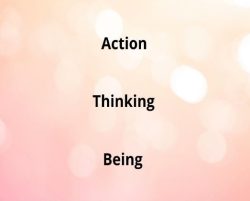May 2024
Dear Friend,
National awareness campaigns are abundant in the month of May each year. Among other areas of focus, May is host to National Women’s Health Week and National Nurses Week. TM for Women celebrates and helps to fulfill the goals of this years’ focuses on nurses’ health and mental health during pregnancy.
- Last month’s blog written by women for women
- Articles
- American Holistic Nurses Association interviews TM for Nurses researchers
- Sanctuary of calm for expecting and new moms
- Q&A: What is the ultimate goal of the TM technique?
- What women say: An obstetrician’s perspective on TM for all women

Twice-monthly we post new articles on our blog. You can visit our blog homepage to search for any topic. If you haven’t read the April 2024 posts, the links are below.
For Women Who Play Pickleball

Do you play pickleball? Thinking about starting? Some people joke that it’s just a game for old people, but according to statistics, more than two thirds of keen pickleball players are between the ages of 18 and 44. Also, among pickleball players there are more men than women but the growth in the number of women players is higher annually. For women, and especially for seniors, there are health benefits from the game.
How to Find Bliss in Everyday Life

We all know what it feels like to have a peak experience, an abundance of joy, or even bliss or clarity that transcends the ordinary. These are moments when we feel fully alive, performing at a high level, in tune, or “in the zone.”

Womens’ Health Week: Recognition, Research, and Real Support for Nurses

Annually, the nationally recognized National Nurses Week runs from May 6th to May 12th, Florence Nightingale’s birthday. In 1998, May 8 was designated as National Student Nurses Day. In 2003, National School Nurse Day was established as the Wednesday during National Nurses Week each year. The activities during this week help to bring recognition to the immeasurably vital contributions nurses make to personal, family, and community health.
On April 19th, Connections in Holistic Nursing Research, a newsletter of the American Holistic Nurses Association, published an interview with Jen Bonamer and Amy Ruff.
Jen Bonamer, PhD, RN, AHN-BC, NPD-BC works as a Nursing Professional Development Research Specialist at Sarasota Memorial Health Care System in Sarasota,
Florida. She leads the nursing research and evidence-based practice programs and is actively focused on supporting healthy work environments and clinician well-being.
Amy Ruff, BSN, RN is the National Director of Transcendental Meditation for Nurses, bringing the evidence based Transcendental Meditation program to nurses across the US. She has presented at nursing conferences including AHNA, ANCC Magnet, and the Mayo Clinic. As Education Director for TM Women, she has obtained continuing education contact hours for nurses when they take the TM course.
The interview featured a study published in the Journal of Nursing Administration: Clinical Nurse Well-Being Improved through Transcendental Meditation: A Multimethod Randomized Controlled Trial(Bonamer et al., 2024). The study concluded that the evidence-based Transcendental Meditation technique can quickly (results within a month) provide benefits to clinical nurses with improvements in personal flourishing and reductions in anxiety, PTSD, and burnout.
The course offered to nurses by TM for Women, Transcendental Meditation for Nurses: Developing Capacity for Improved Judgment, Decision Making and Resilience under Stress, is endorsed by the American Holistic Nurses Association, and nurses can earn 23 contact hours for course completion. More information, visit the TM for Nurses website.
Women’s Health Week:
May 14th Spotlights Maternal Mental Health

Statistics show that 20 percent of women experience mental health issues during pregnancy or in their first year as mothers. Some are fortunate to seek and receive help, but some women don’t report their distress and many healthcare professionals don’t screen for mental health problems either during pregnancy or new motherhood. Many women cannot find or afford access to proper services for treatment.
Recognizing maternal mental health issues
Reports on maternal mental illness exist in medical literature since the time of Hippocrates but in modern times, the range and duration of maternal mental illness is more extensive than previously thought. Although these symptoms are not characteristic of their usual emotional state, pregnant women can start to be withdrawn, angry, deeply sad, or hopeless. Mothers-to-be may feel anxious and apprehensive.The “baby blues” hardly approaches the intensity of these emotions, which new mothers can find incapacitating. A new mom may find she has eating or sleeping problems she hadn’t experienced before. She may feel withdrawn and joyless. More rarely—but a very real concern—is that as her mental health declines, a combination of issues can lead a woman to be confused, hallucinate, and even have thoughts of self-harm.
The Transcendental Meditation technique supports mental health
The British Journal of Psychiatry published a 1997 study on maternal stress or anxiety in pregnancy showing that a healthy physiological response occurs during TM practice as indicated by decreased stress hormones,and improved cardiovascular health. Depression is associated with low levels of serotonin, and studies show that TM practice increases serotonin in subjects whose serotonin is too low.
More published research shows that TM reduces stress, improves emotional balance by reducing anxiety and depression, and improves the quality of sleep, TM meditators report more satisfying connection with others, thereby reducing the sense of isolation new mothers can experience.
According to research published repeatedly over decades, those who practice the TM technique experience and exhibit a calmer style of physiological functioning outside of meditation as well as during their meditation time. This is due to that the deep rest and calming effect of TM to the mind and body are sustained after meditation time is over.

Q: What is the ultimate goal of learning the TM technique?

A: Many women learn the TM technique because of the commonly found benefits of reduced stress, anxiety, depression and health imbalances. Some learn TM to bring more harmony and patience into their relationships. Often women learn to meditate because of the benefit of increased creativity, focus and productivity. These are all valuable assets in our lives, however the ultimate reach of Transcendental Meditation is far greater.
As the mind dips into the transcendent level of consciousness during the TM practice and stabilizes it through our daily activity, evolution occurs effortlessly.
Over time, we discover an inner abundance of joy that transcends what most of us consider “normal” today. We become fully alive and in the “zone.” Inner silence is our permanent reality, and pure bliss is the day to day status of our experience. We realize a profound oneness with everything and everyone. We awaken to the unshakable infinity of universal awareness.
No matter ones reasons for learning the TM technique–and without any expectation or belief, with regular practice and a supportive healthy lifestyle, all of this glorious reality of the highest level of human life will eventually spontaneously unfold.


Obstetrician Rebecca Beuchert, MD, says,
“Both personally as a woman, and professionally as a physician, I have found that the reduction of stress and deep relaxation during TM practice benefits all women. This is true for the pregnant woman who is juggling the physical demands of pregnancy, the laboring patient who benefits from the increased stamina and greater cardiovascular efficiency produced by TM practice, the career woman balancing her constant work with family and home demands, or the postmenopausal woman adjusting to her new and ever-changing physiology.”
Editor’s note: We’d love to hear your comments on the benefits you’ve received from the TM practice. And, with your permission, we’ll publish them here for other women to enjoy. Send your comment to info@tm-women.org




























